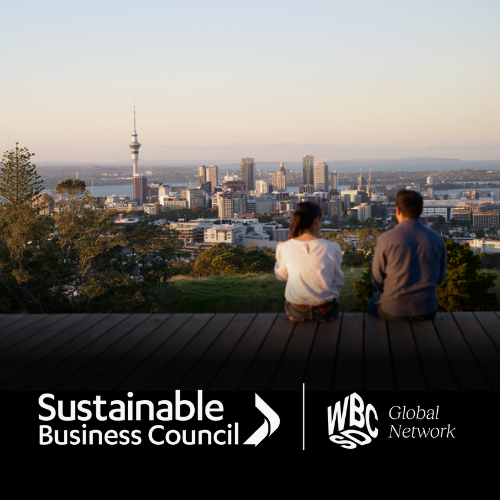Knowing the right questions to guide sustainable practice
Running a business requires problem-solving, often on a daily basis to resolve issues related to stock and supplier management, employee relations, and cashflow. So sometimes it can be hard to make the time to step back and look at the bigger picture, but that is often where sustainability risks and opportunities become visible.
Running a business requires problem-solving, often on a daily basis to resolve issues related to stock and supplier management, employee relations, and cashflow.
So sometimes it can be hard to make the time to step back and look at the bigger picture, but that is often where sustainability risks and opportunities become visible.
Sustainability issues such as climate change, youth unemployment, and plastic waste are now part of the public conversation and are priority issues for business to address.
The speed with which these issues emerge is accelerating, and businesses both large and small need to get better at anticipating and being prepared for these challenges – which a good sustainability process allows them to do.
Pressure, pressure
Investors, shareholders, regulators and consumers are placing greater expectations and scrutiny on business performance and transparency of decision-making, particularly in relation to environmental, social and governance risks.
Some of the issues for business are:
- How can we reduce our waste?
- How can we get the power bill or our transport costs down?
- How do we attract and retain skilled staff?
- How do we know what our carbon emissions are?
Perhaps the board or chief executive already has an awareness, interest or a commitment to lead on such issues; perhaps not. But either way, sustainability issues are becoming more and more pressing in how business is conducted.
Sustainability checklist
Here at the Sustainable Business Council, our purpose is to help businesses be the best for New Zealand and the world. We know that sustainability can seem complex, and our members have told us that making it simple to understand, and easy to do, is one of the main ways we can help.
Based on our work with our members and with NZX, we have developed a Good Corporate Governance checklist to help businesses ask the right questions to:
- understand how prepared their organisation is to achieve sustainability
- manage environmental, social and governance issues
- align the organisation’s strategy with sustainability
- stay in tune with what their stakeholders want and of course keep their businesses profitable
The checklist is available on our website, along with more information to help businesses improve in the areas it covers.
The NZX has also recently revised its Code of Good Corporate Governance to require listed companies to publish information about the environmental, economic and social sustainability risks that they might face. The Financial Markets Authority has also revised its Corporate Governance Handbook to expand the ways companies can manage and report on material sustainability risk.
Non-listed companies may find that their investors or supply chains ask similar questions. The Climate Leaders Coalition, a group of more than 60 companies intent on climate action, signed a statement earlier this year, which included the commitment to work with suppliers to reduce their greenhouse gas emissions.
Leading companies are using sustainability as a tool to navigate these new responsibilities. It helps them design a strategy that works for them, manage their risk and ensure business growth in the long-term. For example, Sanford have been using an “Integrated Reporting” approach to embed sustainability into their organisation’s DNA for the last three years, and as a result are able to access capital at a lower cost.
Businesses also see cost savings, increased employee engagement and a better reputation with customers.
Our unique opportunity at SBC is to bring members together and achieve progress on sustainability issues collectively.
The business case for sustainability is clear. Companies that build sustainability into their business strategy perform better through reduced costs, lower risk, enhanced trust and lasting business growth. Sustainability can be your competitive advantage, with investors, communities and staff.
By Robert Perry, Sustainable Leadership Manager, Sustainable Business Council
Originally published in Business Plus magazine.
Contact:
Phone:
Email:

